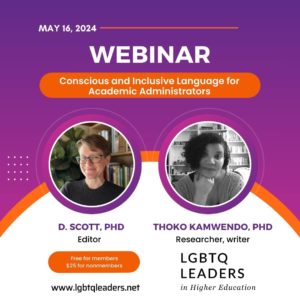On May 16, we welcomed two great guests to speak to us about using conscious and inclusive language in an academic setting. D. Scott (Ph.D., they/them) is a former academic in critical geography and law turned professional freelance editor. They were zooming in from Albuquerque, New Mexico. (Check out the LGBTQ+ Editors Association.) Thoko Kamwendo (Ph.D., she/her) is a sociologist of science. She was on Zoom from Edinburgh, Scotland.

In their one-hour webinar, the facilitators talked about what conscious and inclusive language is, about how commonly used language can do harm, and how conscious and inclusive language can minimize that harm. The term “conscious language” was coined by Karen Yin, the founder of the Conscious Style Guide. Primarily, D. explained, “conscious and inclusive language is focused on not causing harm and honoring people’s identities.”
Thoko said, “we think that this distinction between harm and offense is important, particularly in the context of academia, right where learning and discovery happens through the exchange of ideas, and these are exchanges that can sometimes be clashes.” The focus of conscious and inclusive language is on not causing harm, not on avoiding causing offense.
For the full webinar, including a discussion of how other languages (Swedish, Spanish) are approaching gender-inclusive terms, members may log in to the website (see this page on how to do that) and check out the Member Area for the link to the recording.
See the Events page for newest offerings, including webinars.
